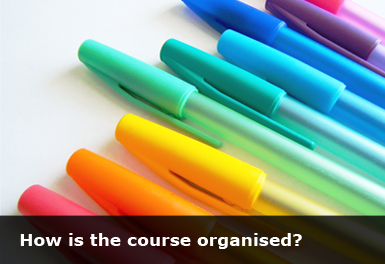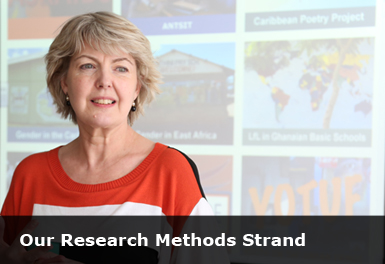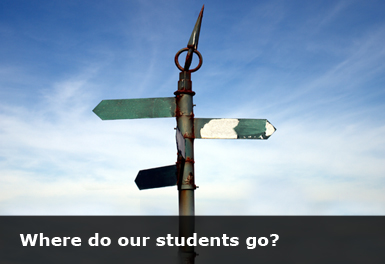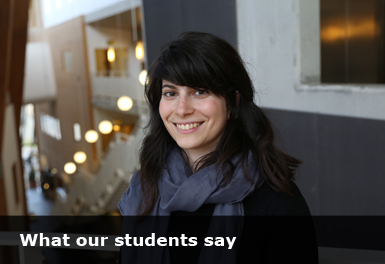There was a very good balance of group and whole class interaction. I felt able to participate during sessions and was encouraged to share experiences.
Important information
This course is only available as a one-year part-time course to students who have already completed their PGCE or PACES course at the Faculty of Education. Otherwise, please apply for the two-year part-time course.
| Key Facts | |
|---|---|
| Route Co-ordinator: Emma Cooper | Part-time enrolled 24-25: 2 (2year MPhil), 10 (PGCEM) 1 (PACESM) |
| Open to: Part-time only; 2year MPhil, PGCE-MEd and PACES-MEd |
|
| 2year MPhil deadline: 14/05/2026 | PGCE-MEd and PACES-MEd deadline: 14/05/2026 |
| Written task required for application | |
Overview of the course
The Primary Masters is intended for education professionals, policy makers and researchers at any stage of their career. We aim to fuse research, theoretical and practical understandings of primary/elementary educational contexts.
Enhance your educational thinking and practice
The course is designed to enable you to enhance your educational thinking and practice through critical reflection, study and research. Students, therefore, participate in both substantive primary education and research methodology courses. One of the strengths of the course is the diversity of course members and Faculty tutors. The course was established by the associate directors of the Cambridge Primary Review and continues to engage teachers in cutting-edge, forward thinking.
Extensive experience of working in partnership with teachers
Staff members have a variety of research interests, drawing on extensive experience of working in partnership with teachers. Course tutors research a range of topics relevant to early years and primary/elementary education, including:
- children’s critical and creative thinking
- digital literacies
- pupil voice
- inclusive pedagogy and learning
- teaching and curriculum
A commitment to dialogic pedagogy informs all our research and underpins the course. The different experiences of staff and students allow us collectively to make links between the taught course content and a variety of professional development and research interests.
Encouraging collaborative working
The course encourages collaborative working among participants, drawing on everyone’s insight and expertise as we consider innovations and challenges in areas such as:
Why choose us?
What does this course offer?
 How is the course organised?
How is the course organised?
PGCE-M and PACES-MEd students complete the Master of Education (MEd course) in one year part-time.
2 year MPhil students complete the course over two years, part-time. This course includes Primary Education and Research Methods sessions.
Each year there are two Primary Education modules and these run as a rolling programme (the bottom two will run in 2025-2026 and the top two will run in 2026-2027)
 Course Attendance
Course Attendance
Part-time study
Course sessions take place on Wednesday afternoons from 2 – 7pm.
 Research Methods Strand
Research Methods Strand
Alongside the modules you will benefit from Research Methods teaching.
This is taught across all thematic Masters within the Faculty of Education, allowing you to interact with others on different courses.
It covers a broad range of social science research methods and is essential for Masters level understanding and critical engagement with the research literature in many specialist areas and in education more generally.
Through this strand you will acquire the skills necessary for designing, conducting, analysing, interpreting and reporting a research study for thesis.
 Who are the course team?
Who are the course team?
The course is staffed by a team of established faculty members who provide teaching and supervision. Other colleagues also contribute one-off lectures:
 Where do our students go?
Where do our students go?
After finishing the Primary Masters course students have continued to pursue a variety of professional and academic careers.
These include continuation and progression within classroom and senior leadership roles, as well as further academic study.
Many students have continued to collaborate with us through engaging as partners in research, and contributing to Faculty teacher education programmes.
 What our students say
What our students say
View video interviews with our students, about their experiences and feedback.

